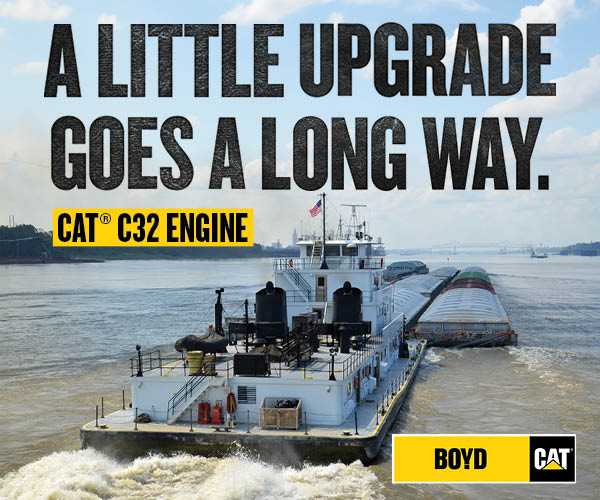Upper Mississippi Waterway Association Charting Its Future
The Upper Mississippi Waterway Association has a long and proud history. Incorporated in 1932, UMWA works with members and other stakeholders to ensure that the Upper Mississippi River navigation system “is used and maintained in a safe and environmentally responsible manner.”
UMWA has historically represented waterways interests in Iowa, Minnesota and Wisconsin. Members include industrial and consumer goods manufacturers, electric utilities, grain companies, agricultural cooperatives, metal recyclers, barge and towing companies, recreational and passenger boat operators, marinas and many others having an interest in river navigation and associated environmental issues. To ensure broad representation, representatives of the U.S. Army Corps of Engineers, the U.S. Coast Guard, the Minnesota Department of Transportation and other agencies serve as ex-officio members. Membership has fluctuated over the years, but always with a core group of solidly committed members.

Now, under new executive director Gary Williams, UMWA is charting its future course. Since taking office in March, Williams has tried to meet individually with all members. The internal discussions are being guided by the four themes of educating the public about the importance of river transportation (something that’s always been part of UMWA’s DNA); promoting investments on the rivers and waterways; promoting careers on and around the rivers; and providing an enhanced voice for members. “Most of our members cover the commerce side,” Williams said.
One of Williams’ core beliefs is that the waterways can’t have too many friends. Since 1932, other organizations have arisen to address the needs of the waterways and water transportation. Williams wants closer coordination with these other groups. “We’re asking ourselves a lot of hard questions about our direction,” he said. “What’s going to provide value to our members?”
“One of the discussions we’re having is about to what extent we want to get involved in legislation, since there are some other groups that are doing that very effectively,” he said. Another conversation is about how and whether to delimit a particular geographical area for UMWA’s activities. Its next meeting in June will be held for the first time in LaCrosse, Wis., rather than in the St. Paul Yacht Club.
Part of UMWA’s agenda will be promoting increased sharing of information and data, both among advocacy organizations and their members. “We don’t know what that sharing will look like yet,” Williams said. Fundraising ideas are definitely on the table. UMWA has engaged Ag Management Solutions to leverage its experience in gaining funding and writing grants, in addition to administrative assistance.Toward the goal of increased contacts with other groups and areas, UMWA is sponsoring a trip in late June by interests from the Columbia/Snake River system to tour infrastructure in the Upper Mississippi system.
“We’re in a position that is worse than the Snake/Columbia system in some ways,” Williams said. “Our lock and dam infrastructure is older and in need of more repairs. On the other hand, though, we don’t have groups that are actively trying to shut down commerce on the Upper Mississippi—yet,” he said, referring to environmental groups that want to tear down the locks and dams on the Columbia and Snake rivers to protect migrating salmon.
The education component is becoming more important as fewer people have family connections to the river. Williams, who comes from an ag background, said the issue is similar to farming issues, as fewer people are directly involved. “After a generation or two without personal connections, people make up their own stories about these sectors, and their own ‘solutions’ to perceived issues that may not be connected to reality.”



